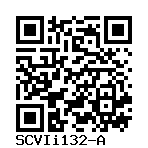SCVIi132-A
General
Cell Line |
|
| hPSCreg name | SCVIi132-A |
| Cite as: | SCVIi132-A (RRID:CVCL_E4FI) |
| Cell line type | Human induced pluripotent stem cell (hiPSC) |
| Similar lines |
CBRCULi016-A-1 (SCN5A p.R219H-14C-ISO) Donor's gene variants: SCN5A Donor diseases: dilated cardiomyopathy FAMRCi006-A (LMNA T3) Donor's gene variants: LMNA Donor diseases: Emery-Dreifuss Muscular Dystrophy Dilated Cardiomyopathy FAMRCi006-B (LMNA T4) Donor's gene variants: LMNA Donor diseases: Emery-Dreifuss Muscular Dystrophy Dilated Cardiomyopathy SCVIi073-A (SCVIi574C2) Donor's gene variants: titin, BAG cochaperone 3, BAG cochaperone 3 Donor diseases: Dilated Cardiomyopathy |
| Last update | 7th May 2025 |
| User feedback | |
Provider |
|
| Generator | Stanford Cardiovascular Institute (SCVI) |
| Owner | Stanford Cardiovascular Institute (SCVI) |
| Distributors | |
| Derivation country | United States |
External Databases |
|
| BioSamples | SAMEA115928486 |
| Cellosaurus | CVCL_E4FI |
General Information |
|
| * Is the cell line readily obtainable for third parties? |
No |
Donor Information
General Donor Information |
|
| Sex | male |
| Ethnicity | White |
Phenotype and Disease related information (Donor) |
|
| Diseases | A disease was diagnosed.
|
Karyotyping (Donor) |
|
| Has the donor karyotype been analysed? |
No
|
Other Genotyping (Donor) |
|
| Is there genome-wide genotyping or functional data available? |
No
|
External Databases (Donor) |
|
| BioSamples | SAMEA115928487 |
Ethics
| Has informed consent been obtained from the donor of the embryo/tissue from which the pluripotent stem cells have been derived? | Yes |
| Was the consent voluntarily given? | Yes |
| Has the donor been informed that participation will not directly influence their personal treatment? | Yes |
| Can you provide us with a copy of the Donor Information Sheet provided to the donor? | No |
| Do you (Depositor/Provider) hold the original Donor Consent Form? | Yes |
| Has the donor been informed about how her/his data will be protected? | Yes |
| Please indicate whether the data associated with the donated material has been pseudonymised or anonymised. | anonymised |
| Does consent explicitly allow the derivation of pluripotent stem cells? | Yes |
| Does consent prevent CELLS DERIVED FROM THE DONATED BIOSAMPLE from being made available to researchers anywhere in the world? | Yes |
| How may genetic information associated with the cell line be accessed? | Controlled Access |
| Will the donor expect to receive financial benefit, beyond reasonable expenses, in return for donating the biosample? | No |
| Has a favourable opinion been obtained from a research ethics committee, or other ethics review panel, in relation to the Research Protocol including the consent provisions? | Yes |
| Name of accrediting authority involved? | The generation of the lines was approved by the Administrative Panel on Human Subjects Research (IRB) under IRB #29904 “Derivation of Human Induced Pluripotent Stem Cells (Biorepository)”. |
| Approval number | IRB #29904 |
| For generation of the cell line, who was the supplier of any recombined DNA vectors or commercial kits used? |
hIPSC Derivation
General |
|
| Source cell type |
A peripheral blood cell with a single nucleus. This category includes lymphocytes and monocytes.
Synonyms
|
Reprogramming method |
|
| Vector type | Non-integrating |
| Vector | Sendai virus |
| Is reprogramming vector detectable? |
Yes |
| Methods used |
RT-PCR
|
Vector free reprogramming |
|
Other |
|
| Derived under xeno-free conditions |
Unknown |
| Derived under GMP? |
Unknown |
| Available as clinical grade? |
Unknown |
Culture Conditions
| Surface coating | Matrigel/Geltrex |
| Medium |
Essential 8™
|
Characterisation
Analysis of Undifferentiated Cells
| Marker | Present | Absent |
| mCpG | ||
| OCT4 |
Differentiation Potency
In vitro directed differentiation
In vitro directed differentiation
In vitro directed differentiation
Genotyping
Karyotyping (Cell Line) |
|
| Has the cell line karyotype been analysed? |
No
|
Other Genotyping (Cell Line) |
|





Login to share your feedback, experiences or results with the research community.